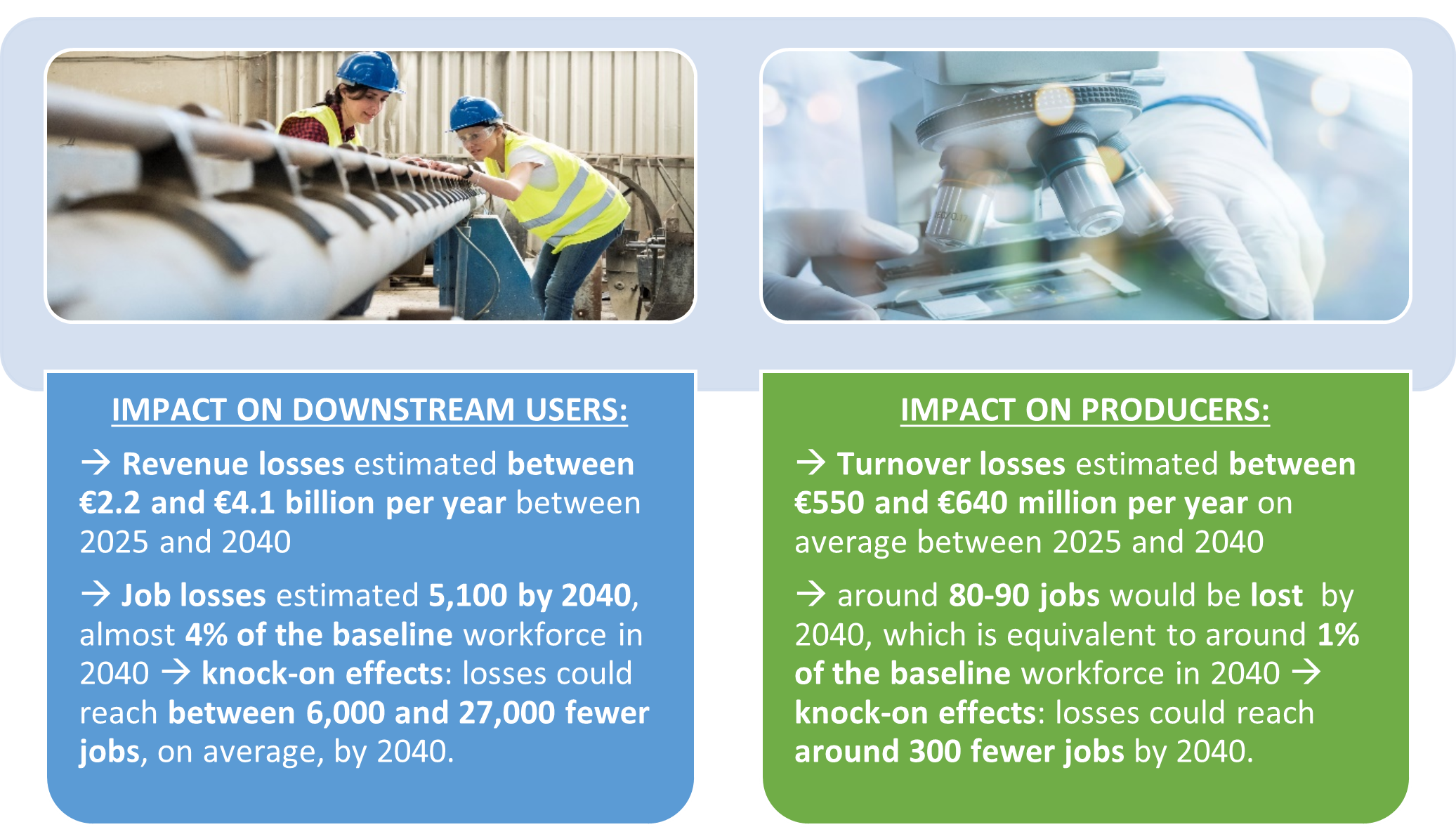All you need to know about EFCTC’s Socio Economic Analysis (SEA) on the value of F-gases
In 2022, EFCTC has commissioned the consulting company Ricardo to undertake an independent Socio-Economic Analysis (SEA) of the contribution of certain fluorinated gases (F-gases) to the economy and the wider society
The aim of this project
The intention is to submit to the outcome of the study to the European Chemicals Agency during the public consultation planned for 2023.
Background
5 countries (Denmark, Germany, Norway, Sweden, and the Netherlands) are preparing a proposal for a broad REACH restriction of a group of substances known as PFAS. According to the latest communication from the authorities of these countries, some F-gases fall under the definition of PFAS that will be used in the context of this REACH restriction proposal. The aim of the SEA commissioned by EFCTC is to provide important data to the Socio-Economic Analysis Committee (SEAC) and to the Risk Assessment Committee (RAC) of the European Chemicals Agency (ECHA) in the context of their opinion forming process for this proposed restriction.
EFCTC has already submitted detailed scientific information on known environmental effects of F-gases to the national competent authorities of the five states in the frame of two public consultations (“calls for evidence”) for this file.
However, at this stage of the process, F-gases have not been excluded from the scope of the restriction proposal and more needs to be done in order to demonstrate that F-gases are already successfully managed under the F-gas Regulation Reg (EU) No517/2014).
Scope & goal
This study explores the potential economic and social effects of the proposed restriction on PFAS on activities associated with the manufacture, placing on the market and use of the F-gases in scope. In addition, it also aims to capture the social and environmental effects: i.e., describing the potential human health and environmental impacts of these substances, alongside their contribution to the wider society. The strong engagement with stakeholders, including trade associations, has resulted in a thorough, detailed and objective analysis.
The scope of this SEA is limited to a set of 10 F-gases (and the mixtures in which these form a component part), which have been identified as meeting the proposed definition of PFAS at risk of a REACH restriction and are of interest to EFCTC.

SEA report
The analysis presented in this report is based on evidence gathered from desk-based research from literature and public statistics, and from consultation responses from the surveys of F-gas producers and importers, as well as downstream users.
The losses for downstream users would result from products containing F-gases no longer being allowed to be placed on the market. Additionally, a potential PFAS restriction would limit access to F-gases to service the millions of pieces of equipment currently already in operation throughout the EEA.
Moreover, according to Ricardo’s study, the restriction of all F-gases could disrupt the transition to lower-global warming potential H(C)FOs and could undermine the EU Green Deal ambitions, since H(C)FOs are efficient, use less energy and have low overall greenhouse gas emissions.
You can find here a more extensive summary of Ricardo’s Socio-Economic Analysis (SEA) of the value of F-gases.
You can find the full report at the bottom of this page.
